Mangione, Mamdani and the Media
Zohran Mamdani looks poised to become mayor of the most important city in the world tomorrow, despite the New York Times (and other major media) doing its best to smother his campaign in its crib.
If that’s not enough of a sign that the media are losing their gatekeeping power over what people think, there’s also the Times’ recent decision to publish Luigi Mangione’s diary entries — a striking reversal from their earlier refusal to publish his manifesto. Gone are all the supposed concerns about a killer’s writings inspiring copycat attacks, social contagion and the like. That’s the thing about media “standards”: they’re not that standard.
I asked the Times how it could publish the diary entries when it earlier declined, as did all major media, to publish his manifesto in full.
“Our coverage of the killing of the UnitedHealthcare C.E.O. has been comprehensive and has included quotes from the 262-word manifesto when relevant,” a spokesperson for the Times, Danielle Rhoades Ha, told me in an email. “Yesterday, we published a deeply reported investigation … based on interviews with Mangione’s acquaintances, private messages and diary entries that help readers understand his mindset.”
The “deeply reported investigation” she’s referring to is a Times article that has little to say about the political dimension to Mangione’s alleged act. The piece instead focuses on some misty Japanese mountains he traveled to before the killing, the kind of thumb-sucking feature that the media loves to showcase instead of what most people would prefer to know: basic facts about what happened.
“Luigi Mangione was imbued with the dark powers of an assassin after climbing the sacred mountain Omine,” a representative sentence in the Times piece reads.
Good for a literary awards committee, I suppose, but the key words and phrases, in the mind of the Times, are “relevant” and “help readers understand.” The standard, in other words, is that we, the media, decide what is relevant and in need of explanation to a helpless public. The paternalism at play here really cannot be exaggerated.
Ask just about anyone outside of the hermit kingdom that is legacy media about Mangione and they’ll know all about the grotesque cost of healthcare at the heart of this story. No explanation needed.
Still, the diary entries the Times published do help readers understand Mangione’s mindset. In particular they shed light on his deep concern with how the killing would be perceived and how to maximize its political impact.
“This investor conference is a true windfall,” Mangione writes, referring to the corporate meeting in Midtown where the murder would later occur. “It embodies everything wrong with our health system, and — most importantly — the message becomes self-evident.”
At one point, Mangione explicitly lays out his hope that the murder will give rise to public discussion about the role of “greed” in the healthcare system.
“Members of the public can focus on greed, on the event, through reasonable, acceptable discussion,” Mangione writes.
His clear-eyed reflection on the murder flies in the face of the depiction of him as a nihilist — including by the Times itself! —and is a good illustration of why it’s important to publish these materials. It’s worth asking why someone like Mangione, an Ivy-educated young man who, by all accounts, seemed to have a future, allegedly felt that the only way to effectively express his political critique of the healthcare system was with a grisly murder. What is America’s politics lacking that makes people feel it is not worth engaging?
But that discussion can only happen if you accept that there’s an internal logic to the killing, and that it wasn’t some random, senseless act, as these incidents are often dismissed.
In any case, newspaper’s decision to publish the actual photos of Mangione’s diary entries was the right move and a sign that the, uh, Times are a-changing. Many people were angry at the media’s refusal to publish the manifesto, including their own staffers, as I wrote at the time. The outrage was itself an indication that the public doesn’t see the media as a legitimate gatekeeper; and the publication of Mangione’s diary a likely concession to people’s frustration.
New York City’s mayoral election tomorrow represents another example of how the media’s gatekeeper status is slipping away. There too, the Times tried and failed to play gatekeeper when its editorial board released a statement warning readers against voting for Mamdani.
“Unfortunately, Mr. Mamdani is running on an agenda uniquely unsuited to the city’s challenges,” the Times’ editorial board solemnly declared shortly before the primary election. “He is a democratic socialist who too often ignores the unavoidable trade-offs of governance.”
The editorial board statement acknowledged former Governor Andrew Cuomo’s “shortcomings” — including his resignation over allegations of sexual harassment from 11 women — before concluding that Cuomo was the best candidate.
The Times’ issue with Mamdani was exactly what propelled him to victory: his willingness to think big and forgo the piecemeal for the ambitious, like his “freeze the rent” slogan. The Times’ gripe is basically that he isn’t “realistic” (i.e. small bore) enough something that New Yorkers rejected in the primary election and look poised to do so again tomorrow.
Evidently people are tired of letting the media decide the limits of political possibility. Let’s hope Mamdani’s election will equally signal to a moribund (both literally and figuratively) Democrat Party that they’d better mend their ways if they want to be relevant.
— Edited by William M. Arkin

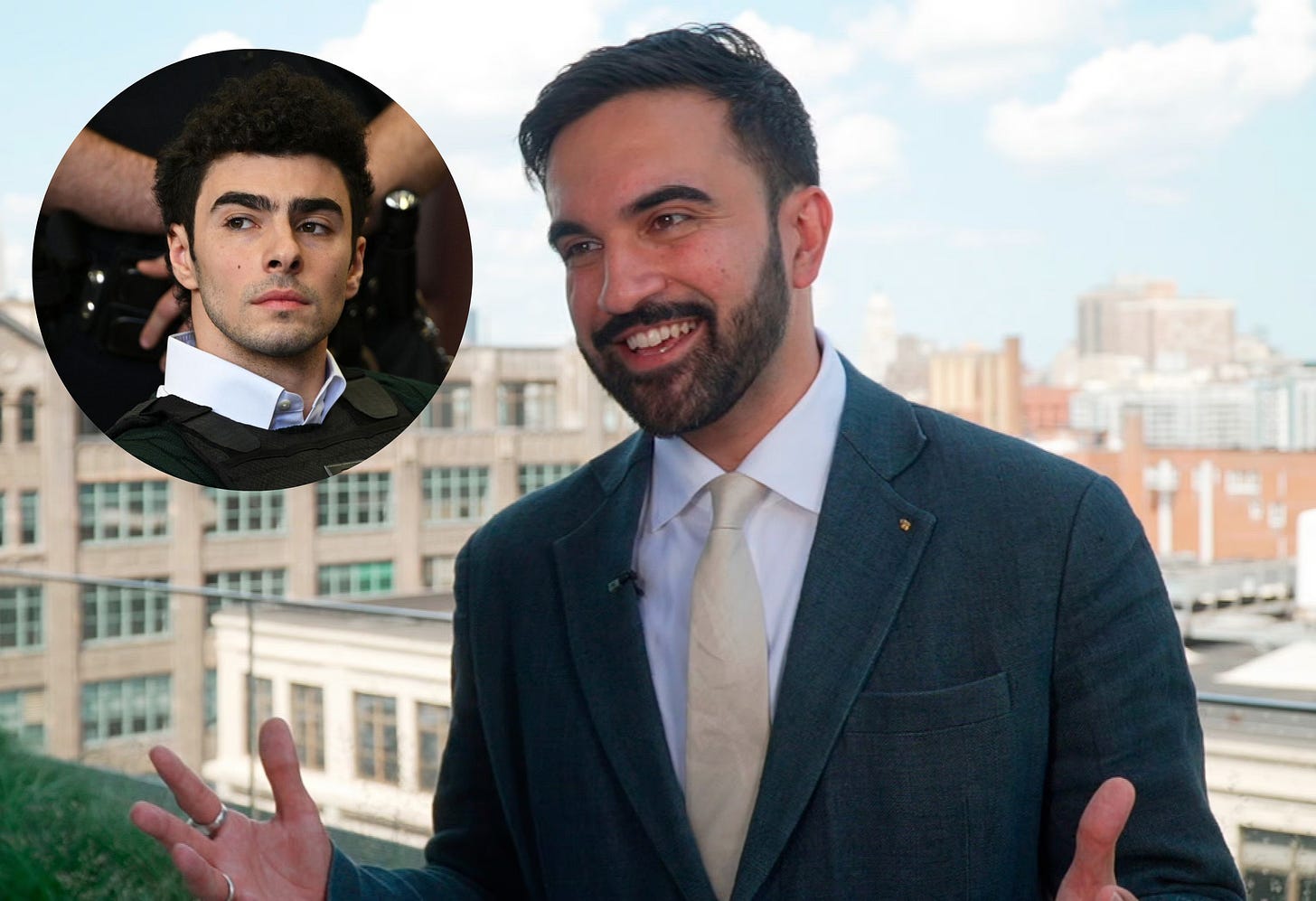
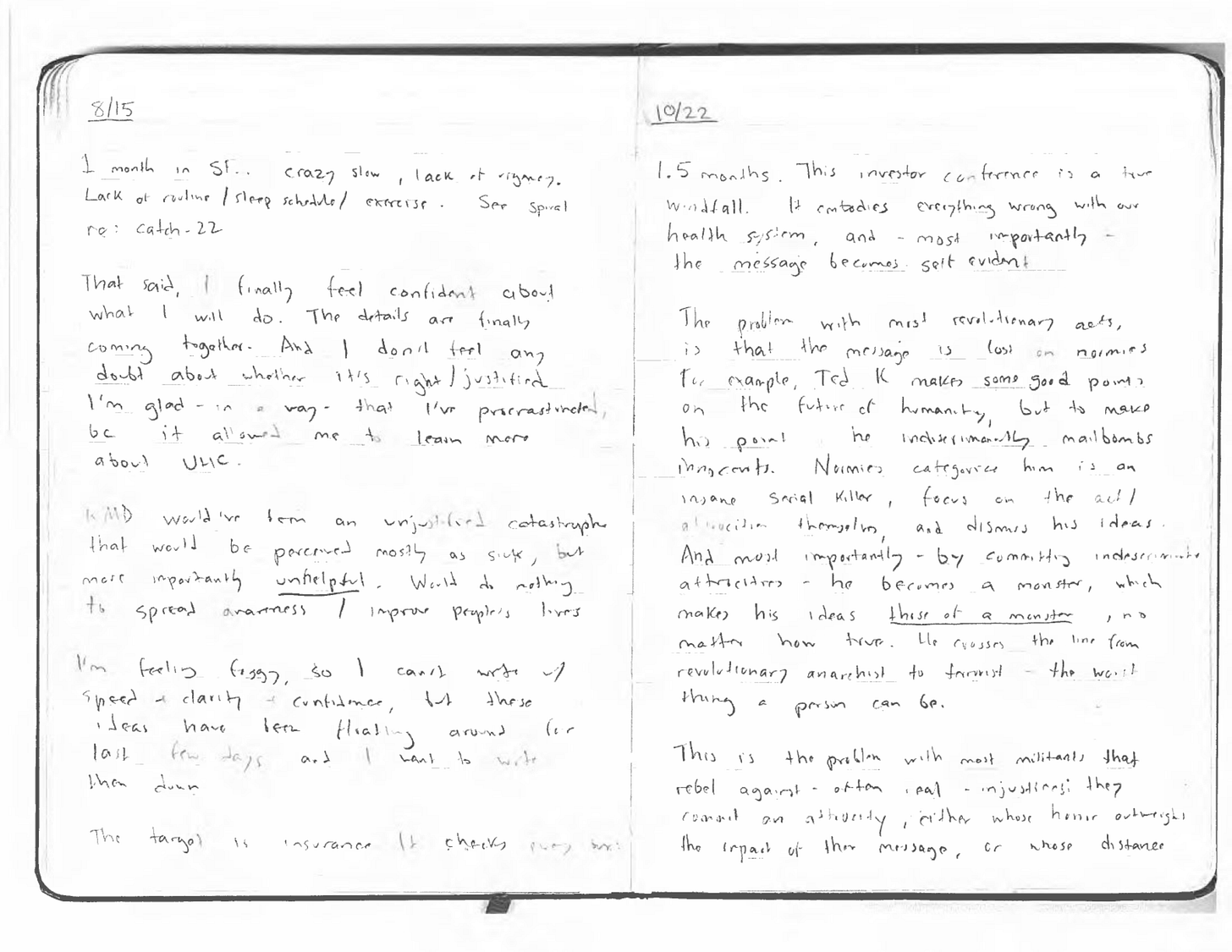
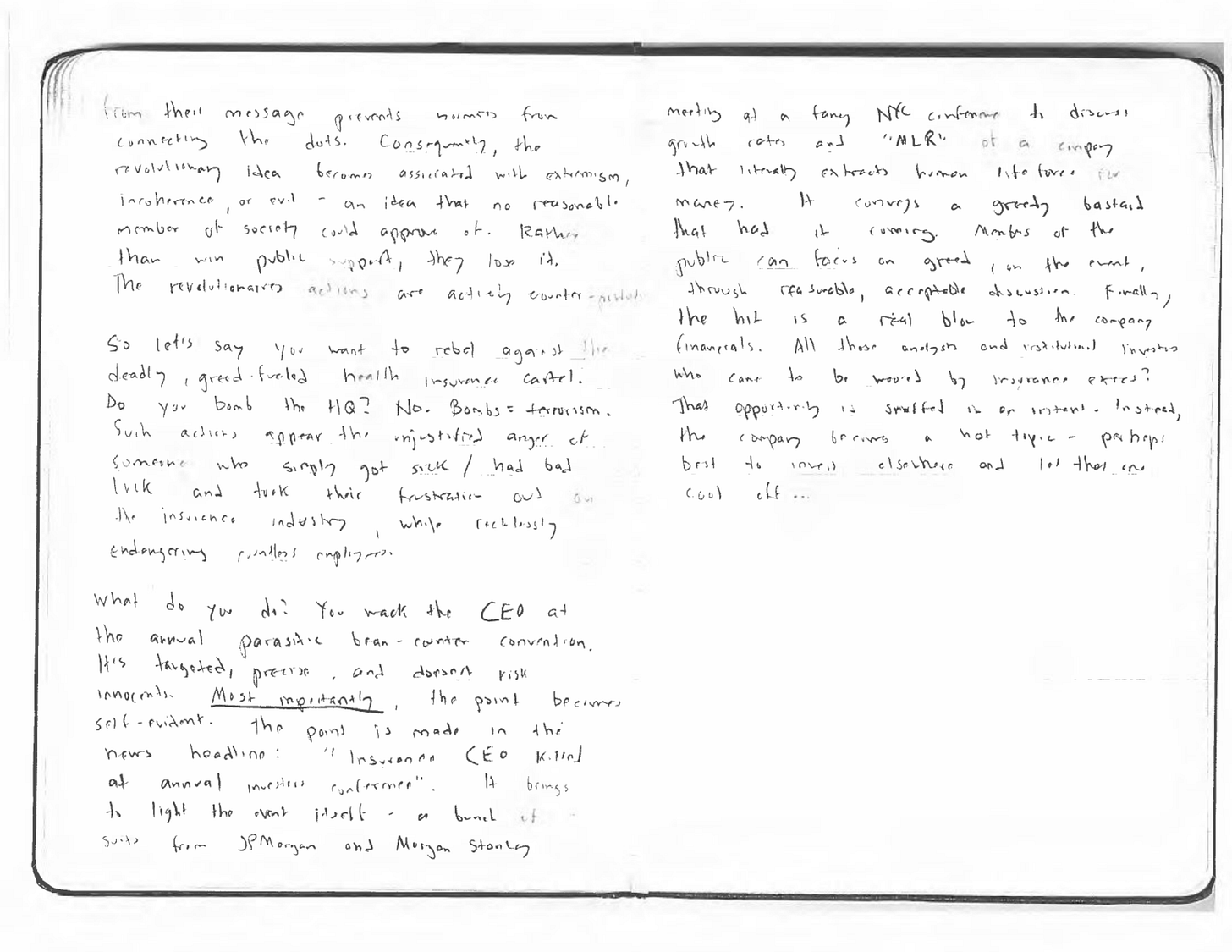
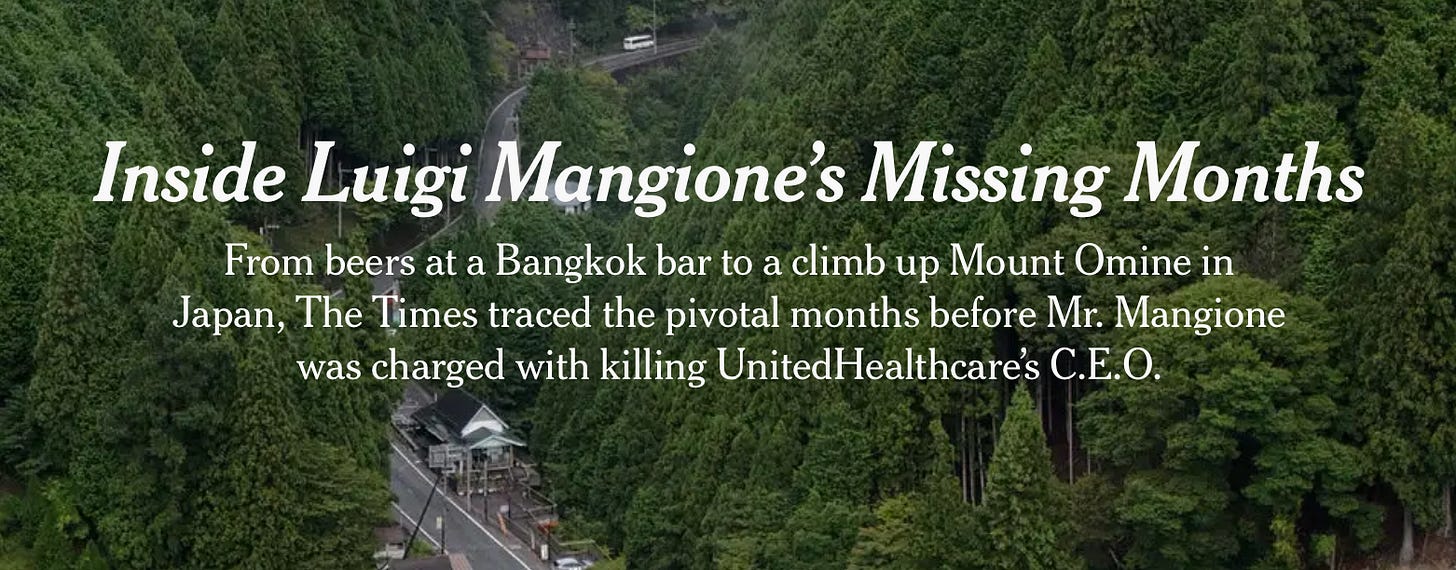
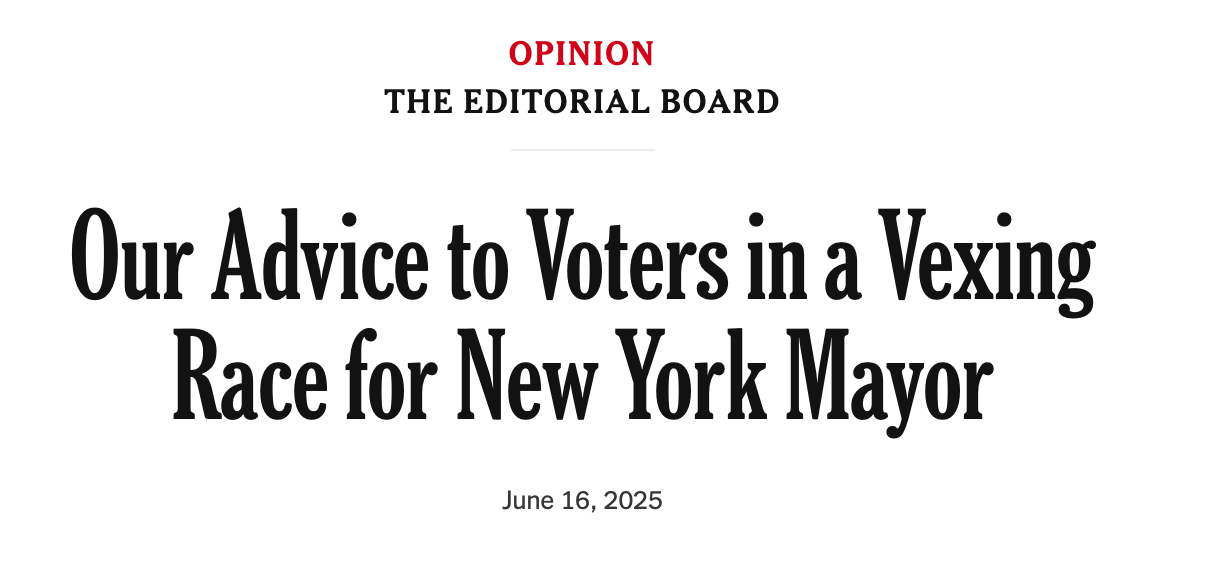
" What is America’s politics lacking that makes people feel it is not worth engaging?" Could that missing element be actual, true democracy, one that offers voters a real choice? Just a thought.
According to AI:
"Several health systems, including Lehigh Valley Health Network, Carson Tahoe Health, and Mayo Clinic, are ending or have ended contracts with UnitedHealthcare. Other systems like Johns Hopkins Medicine and Samaritan Health Services have also gone out of network with UnitedHealthcare's Medicare Advantage plans. This is part of a larger trend where many health systems are ending contracts with various health insurers over payment disputes. "
Free Luigi, F#$k the NYT